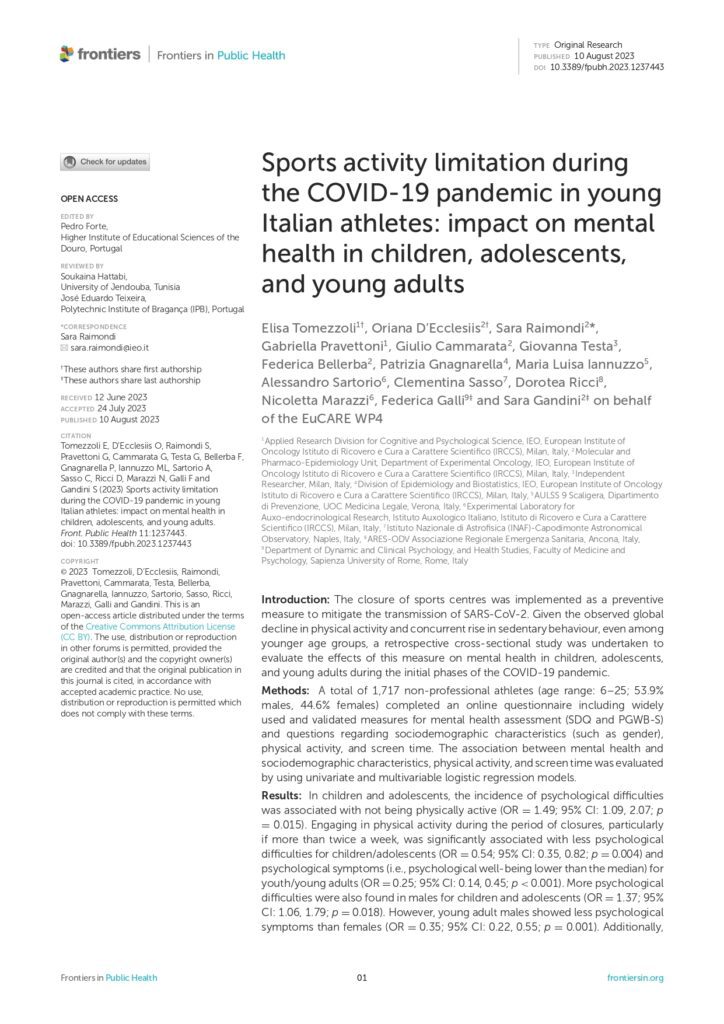Publication links
Abstract
Introduction
The closure of sports centres was implemented as a preventive measure to mitigate the transmission of SARS-CoV-2. Given the observed global decline in physical activity and concurrent rise in sedentary behaviour, even among younger age groups, a retrospective cross-sectional study was undertaken to evaluate the effects of this measure on mental health in children, adolescents, and young adults during the initial phases of the COVID-19 pandemic.
Methods
A total of 1,717 non-professional athletes (age range: 6–25; 53.9% males, 44.6% females) completed an online questionnaire including widely used and validated measures for mental health assessment (SDQ and PGWB-S) and questions regarding sociodemographic characteristics (such as gender), physical activity, and screen time. The association between mental health and sociodemographic characteristics, physical activity, and screen time was evaluated by using univariate and multivariable logistic regression models.
Results
In children and adolescents, the incidence of psychological difficulties was associated with not being physically active (OR = 1.49; 95% CI: 1.09, 2.07; p = 0.015). Engaging in physical activity during the period of closures, particularly if more than twice a week, was significantly associated with less psychological difficulties for children/adolescents (OR = 0.54; 95% CI: 0.35, 0.82; p = 0.004) and psychological symptoms (i.e., psychological well-being lower than the median) for youth/young adults (OR = 0.25; 95% CI: 0.14, 0.45; p < 0.001). More psychological difficulties were also found in males for children and adolescents (OR = 1.37; 95% CI: 1.06, 1.79; p = 0.018). However, young adult males showed less psychological symptoms than females (OR = 0.35; 95% CI: 0.22, 0.55; p = 0.001). Additionally, a greater amount of screen time was associated with a higher incidence of psychological symptoms in the whole sample.
Conclusions
Our results confirm the positive impact of physical activity on mental health during the COVID-19 pandemic among younger age groups. They also provide valuable insights into the risk-benefit relationship of interrupting sports activities as a preventive measure for infectious diseases.
Keywords
Citation
Tomezzoli E, D’Ecclesiis O, Raimondi S, Pravettoni G, Cammarata G, Testa G, Bellerba F, Gnagnarella P, Iannuzzo ML, Sartorio A, Sasso C, Ricci D, Marazzi N, Galli F and Gandini S (2023) Sports activity limitation during the COVID-19 pandemic in young Italian athletes: impact on mental health in children, adolescents, and young adults. Front. Public Health 11:1237443. doi: 10.3389/fpubh.2023.1237443

